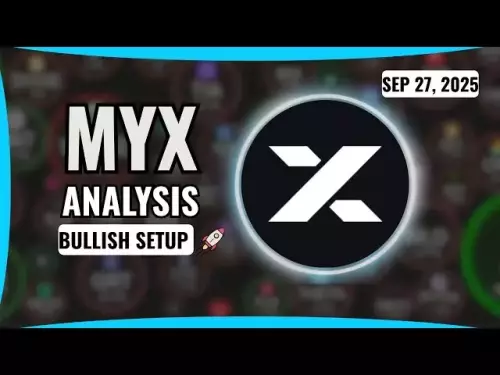 |
|
 |
|
 |
|
 |
|
 |
|
 |
|
 |
|
 |
|
 |
|
 |
|
 |
|
 |
|
 |
|
 |
|
 |
|
Cryptocurrency News Articles
Bitcoin Security, Cryptocurrency Protection, and Wallet Management: A New Yorker's Guide
Sep 19, 2025 at 03:41 pm
Navigate the wild world of crypto with savvy security tips. From robust identity verification to cold storage, keep your Bitcoin safe and sound.

Bitcoin Security, Cryptocurrency Protection, and Wallet Management: A New Yorker's Guide
So, you're diving into the crypto scene? Smart move, but listen up! In the ever-evolving world of digital assets, especially with Bitcoin leading the charge, security isn't just a good idea—it's essential. Let's break down how to keep your hard-earned crypto safe, New Yorker style.
The Lay of the Land: Why Security Matters
The crypto landscape is booming, but with growth comes risk. Cyber attacks, shaky exchanges, and newbies making rookie mistakes put your funds at risk. We're talking about more than just price swings here. That's why understanding and implementing robust security protocols is non-negotiable.
Fort Knox Digital: Essential Security Measures
Digital Identity and Account Verification
First things first, verify your identity. Cryptocurrency sites usually ask for a passport, national ID, utility bill, or bank statement to verify your account. It's like showing your ID to get into a bar – it establishes account integrity, ensures regulatory compliance, and reduces fraud. Think of it as the bouncer at the door of your digital assets.
Password Strength and Authentication Methods
Your password is the first line of defense. Industry data is clear: weak or reused passwords are a disaster waiting to happen. Amp things up with two-factor authentication (2FA). As Kraken says, 2FA uses "two separate means of identification" to approve transactions, creating a barrier against unauthorized access, even if one component is compromised.
Payment Methods: Choose Wisely
How you fund your account matters. Bank transfers offer traceability, while credit and debit cards are faster but come with higher fees. Digital wallets are convenient but require top-notch device security to prevent data leaks. Remember in 2024, analysts flagged fraudulent card transactions as common entry points for exchange breaches and exchanges have responded by employing behavioral analytics to detect anomalous behavior in real-time before transactions are approved.
Hot vs. Cold Wallets: Where to Stash Your Cash
Storage is crucial. Hot wallets are always online, offering quick access but exposing assets to online attacks. Cold wallets, stored offline on hardware or paper, offer higher security at the cost of real-time access. Remember Mt. Gox? Over 700,000 Bitcoins vanished due to online protocol gaps. Diversify your storage: keep long-term holdings in cold storage.
Monitoring Transactions and Activity
Security doesn’t end after you buy Bitcoin. Keep a close eye on your transactions. Most sites offer account notifications, access history, and device tracking. According to Kraken, accounts frequently reviewed for transactions and device scrutiny are less vulnerable to long-term breaches. An Asian exchange saw a 40% reduction in unauthorized access attempts within six months by flagging access from unfamiliar sources.
Phishing and Social Engineering: Spot the Fakes
Phishing is rampant. Impostors mimic legitimate sites with fake emails, duplicate sites, or bogus apps to steal your credentials. In 2022, threat actors promoted a fake mobile app resembling a major exchange, tricking users into handing over their information. Always download apps from trusted stores and double-check website addresses before entering sensitive data.
Cross-Chain Security: A New Frontier
The latest buzz is all about securing Bitcoin transfers across different blockchains. Symbiotic, Chainlink, and Lombard are teaming up to launch a cryptoeconomic guarantee layer for secure cross-chain Bitcoin transfers. This collaboration uses Chainlink’s Cross-Chain Interoperability Protocol (CCIP) to secure transfers of Lombard Staked Bitcoin (LBTC). It's a big step towards making cross-chain transactions safer and more reliable.
Global Standards: A Patchwork of Protocols
Security protocols vary by region. Asia emphasizes cold storage, Europe focuses on identity authentication, and Latin America prioritizes device encryption for mobile users. Despite these differences, the global industry agrees on the need for education, multi-layered verification, and explicit protection measures. User confidence directly correlates with the implementation of these protections.
The Bottom Line
Securing digital assets is a must for global adoption. Whether it's robust identity verification, secure payment methods, or smart storage decisions, every step counts. Keep your wits about you, stay informed, and you'll navigate the crypto world like a pro.
So, there you have it. Crypto security doesn't have to be a headache. With a little know-how and a dash of New Yorker savvy, you can keep your Bitcoin safe and sound. Now go out there and conquer the crypto world – responsibly, of course!
Disclaimer:info@kdj.com
The information provided is not trading advice. kdj.com does not assume any responsibility for any investments made based on the information provided in this article. Cryptocurrencies are highly volatile and it is highly recommended that you invest with caution after thorough research!
If you believe that the content used on this website infringes your copyright, please contact us immediately (info@kdj.com) and we will delete it promptly.





























































